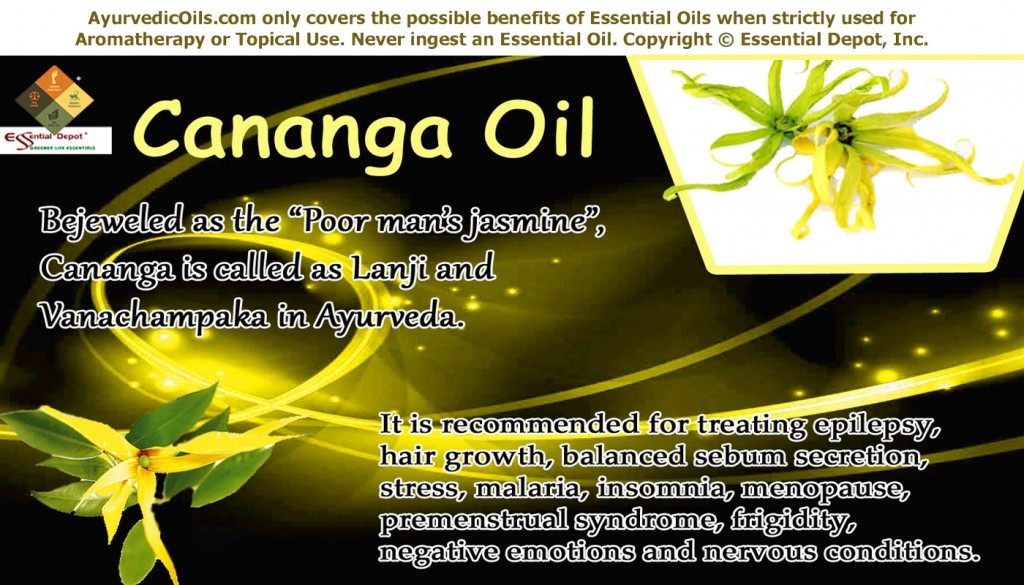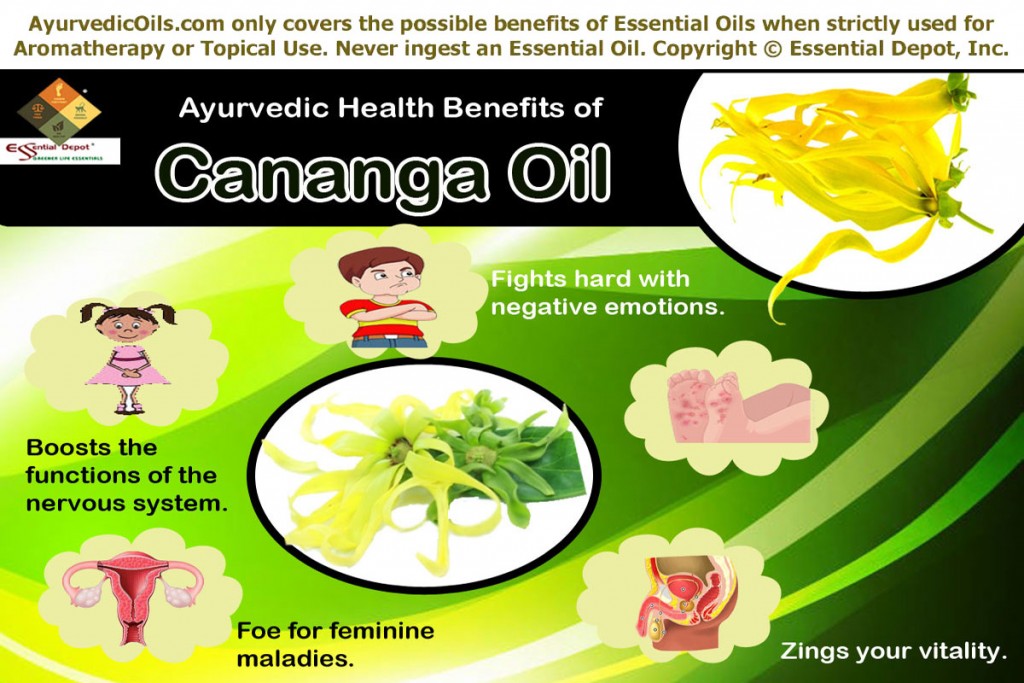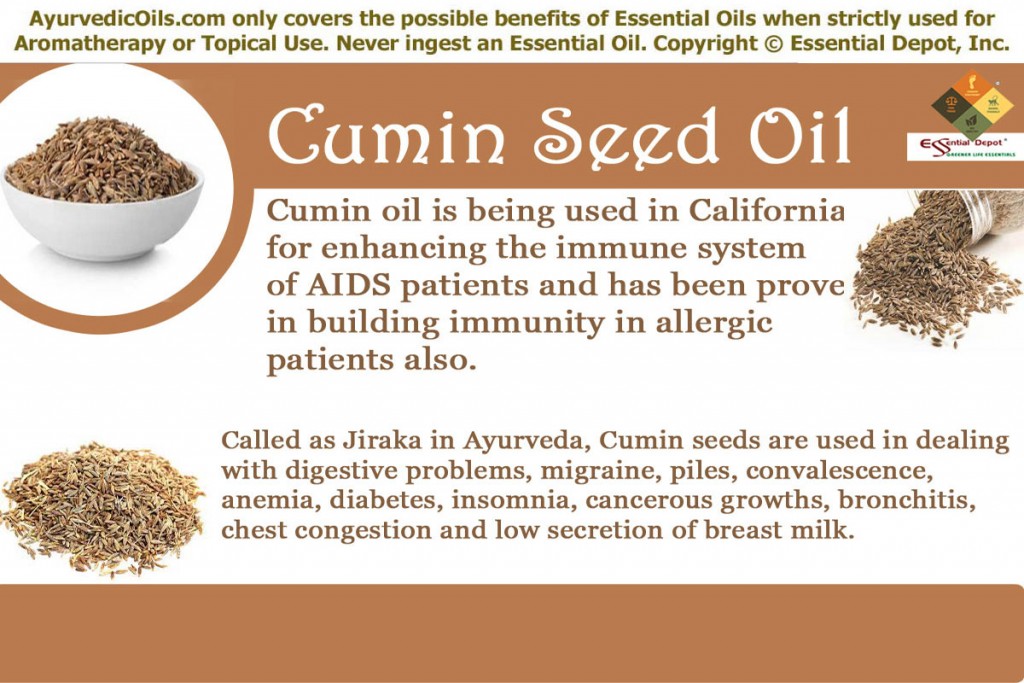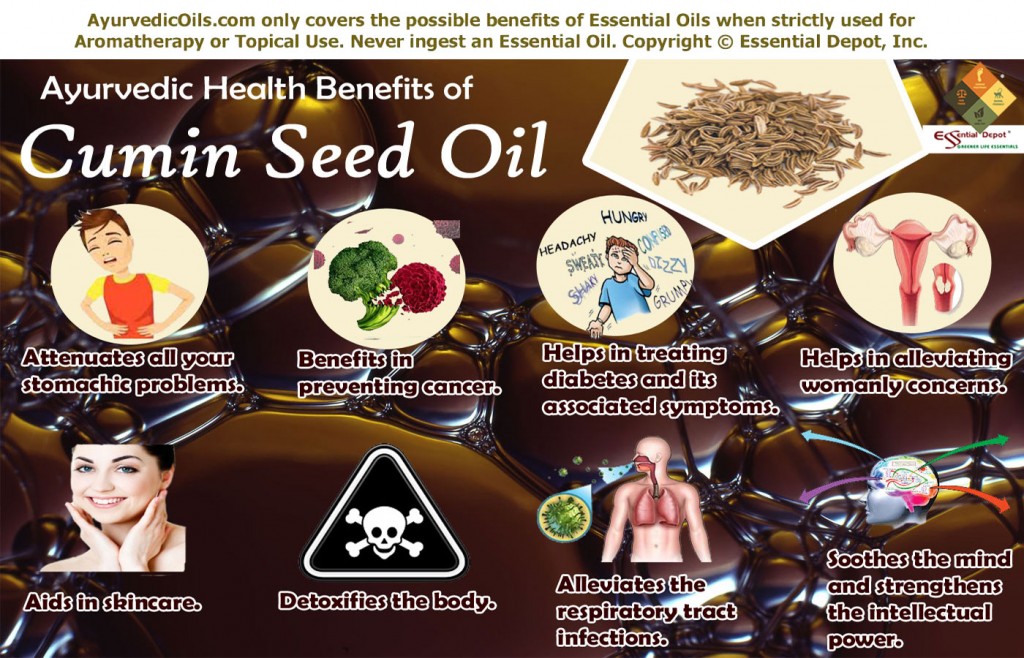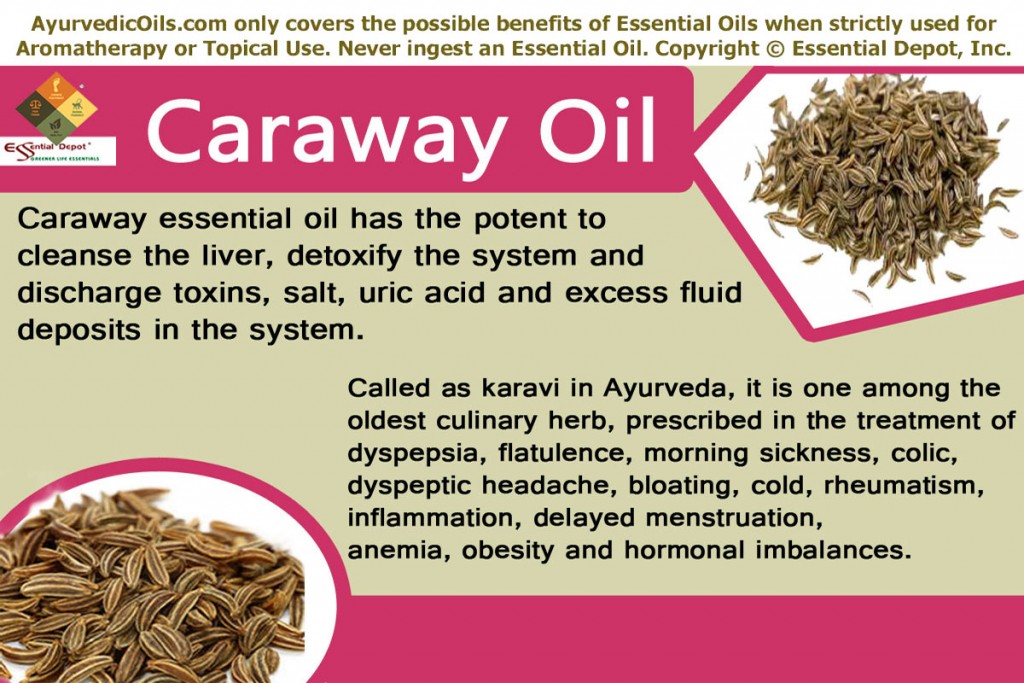 Which Ayurvedic oil ‘warms the kidneys’ and ‘moves the liver’? Ah! Wait! Wait! Don’t panic, it is Caraway essential oil that has the potent to cleanse the liver, detoxify the system and discharge toxins, salt, uric acid and excess fluid deposits in the system through urine.
Which Ayurvedic oil ‘warms the kidneys’ and ‘moves the liver’? Ah! Wait! Wait! Don’t panic, it is Caraway essential oil that has the potent to cleanse the liver, detoxify the system and discharge toxins, salt, uric acid and excess fluid deposits in the system through urine.
Also known as Persian cumin, Meridian fennel and Shahi jeera, Caraway is one among the 3000 species of plants of the Umbelliferae family dispersed throughout the world. The essential oil is extracted from the dried seeds through steam distillation method.
The Sanskrit name of Caraway is karavi and it is one among the oldest culinary herb used in Ayurvedic healing since the Stone Age. Caraway and its essential oil is being used in Ayurveda for treating diarrhea, dyspepsia, flatulence, morning sickness, colic, dyspeptic headache, bloating, cold, cough, rheumatism, inflammation, delayed menstruation, genitourinary problems, anemia, obesity and hormonal imbalances.
Purchase Caraway Essential Oil – 4oz – CLICK HERE
Historical uses of Caraway and its essential oil:
Indigenous to Western Asia, Europe and Northern Africa, Caraway is botanically called as Carum carvi. The roots of the Caraway herb were mixed with milk and used in the preparation of Chara – the bread that was taken by Julius Caesar and his soldiers of Valerius.
Caraway has been carved in the ancient scriptures and gained esteem during the middle ages. The recent research from Arabic regional studies recommend “Carum carvi use as an endocrine function support agent, specifically related to thyroid disorders and auto immune disease.”
Parkinson mentions its healing attributes in one of his works which quotes Caraway ‘is much used to be put among baked fruit, or into bread, cakes, etc., to give them a relish. It is also made into comfits and taken for cold or wind in the body, which also are served to the table with fruit.’
It was a tradition to serve a saucer full of Caraway with roasted apple and is still kept in Trinity College, London. Caraway seeds were used as the best condiment in Greece, Rome, Russia, Norway and Sweden. Caraway essential oil is used as an active ingredient in the preparation of alcoholic liquors. It is also used in the Traditional Chinese Medicine for treating hiccups, hernia, lower back pain, lack of appetite and nausea.
The Ebers Papyrus of the African medicine, dated 1500 B.C. prescribe Caraway for treating gastrointestinal problems. People in the primeval period believed that the presence of Caraway in any object will be protected from theft. It was also used in love potions to keep the lovers away from wandering and was given to pigeons and other fowls to keep them away from straying.
Alleged to be first used by the ancient Arabs, Caraway seeds are used in Arabic medicine as a carminative for children and to treat psychological conditions such as hysteria. It is used as a diuretic to treat hypertension and diabetes in Moroccan traditional medicine. Caraway water is used as a medium for pediatric medicines and vapors obtained from Caraway seeds is trusted to alleviate rheumatism and lumbago.
Chemical constituents and therapeutic properties of Caraway essential oil:
Owing major similarities to the other members of the Apiaceae (also known as Umbelliferae) family, Caraway essential oil have carvone and limonene as its major components and the other constituents are carvacrol, α-pinene, γ-terpinene, linalool, furfurol, thujone, carvenone, and p-cymene.
Caraway also serves as a rich source of fatty acids, lignin, vitamins, amino acids, polysaccharides, triacylglycerols and numerous minerals such as copper, potassium, manganese, magnesium, calcium, selenium, zinc and iron.
Caraway essential oil has been in use since antiquity for its countless therapeutic properties like carminative, astringent, antispasmodic, eupeptic, antihistaminic, antiseptic, aperitif, antimicrobial, disinfectant, emmenagogue, expectorant, stimulant, stomachic, digestive, insecticide, diuretic, galactogogue, cardiac, antioxidant, anti-diabetic, anti-ulcerogenic, anti-carcinogenic, anti-stress and vermifuge.
Ayurvedic health benefits of Caraway essential oil:
Ayurveda is the oldest healing sciences known to the world and is said to have been in practice for more than 5,000 years. The most notable thing about Ayurveda is that its healing practices are recorded systematically in the form of literature.
Among the 4 major sacred books of the Indian Mythology, Atharvana Veda records the Ayurvedic therapies and about 114 verses of this sacred book shares the symptoms and diagnostic techniques of numerous health disorders.
Ayurveda is a holistic healing methodolgy that treats the individual instead of the symptoms and traces the root cause of an illness. By this way, this ancient common sense science focuses on prevention of illnesses leading through healthy aging process to longevity.
Based on the Vedic references of Ayurveda, two ancient Ayurvedic texts were written by the legendary Ayurvedic physicians known as Charaka and Sushruta, who wrote Charaka Samhita and Sushruta Samhita.
These Ayurvedic encyclopedias states that everything is a part of nature and the human body is a combination of the five elements known as Panchamaha Bhoothas, namely fire, water, earth, air and space.
Every person is made up of a unique individual constitution that consists of three dynamic energies known as doshas (vata -air & space, pitta – fire & water and kapha -water & earth), which are a combination of the elemental forces of nature.
For a person to be hale and healthy, these doshas should always remain in a specific ratio as set by nature and any change in the functioning or the balance between these doshas cause illnesses. Imbalance of these biological energies mainly occurs due to food habits (mainly depending on the quality of the food taken), change in weather conditions and lifestyle changes.
Ayurvedic remedies like plant essential oils, herbs, yoga, meditation, prayers, Abhyanga or art of Ayurvedic massaging, Panchakarma or the detox technique and Ayurvedic routine are recommended based on the Prakriti or the unique individual constitution of a person and for correcting the imbalances of dosha.
Caraway essential oil has the potent to reduce kapha and vata doshas and increase pitta dosha, making its use inevitable in the treatment of respiratory problems, skin disorders, spasms, cramps, bloating and other digestive disorders.
The Ayurvedic health benefits of Caraway essential oil are: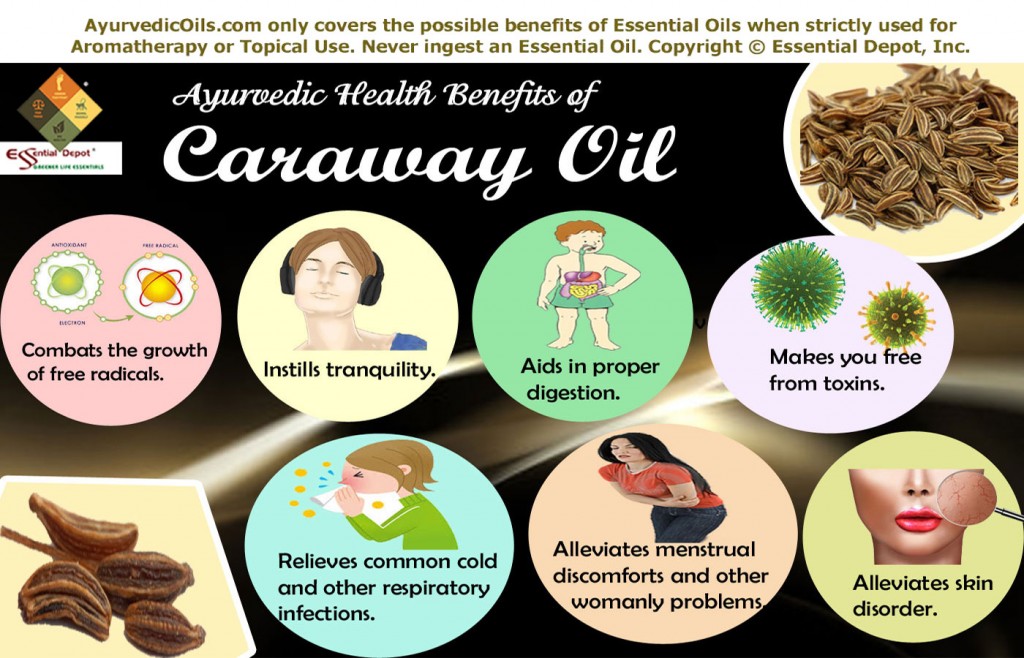 1. Combats the growth of free radicals:
1. Combats the growth of free radicals:
Caraway essential oil serves as an effective antioxidant with its rich content of monoterpene alcohols, linalool, flavonoids and other polyphenolic compounds. This helps in destroying and inhibiting the growth of free radicals, which are responsible for cellular oxidation.
Certain scientific studies conclude that the dietary supplementation of Caraway to rats induced with colon cancer suppressed the crypt foci development and decreased the level of fecal bile acids and alkaline phosphatase which affects the epithelial cells of the colon and the rectum if not kept under control. The presence of carvone and limonene helps in reducing the lipid peroxidation products of the intestines and the colon.
Moreover the chemical compounds such as anethofuran, carvone and limonene are potential cancer chemo-preventive agents that build a protective shield against various mutagens such as dimethylnitrosamine, nitrosodimethlyamine, methylazoxymethanol acetate and inhibit the development of stomach cancers in mice induced by diethylsitosamine.
The antioxidant property of Caraway essential oil also makes it an efficient anti-carcinogenic, apoptotic, anti-proliferative and anti-mutagenic agent. As an apoptotic, Caraway essential oil proves fruitful against human leukemia cells and it also anti-proliferates the tumor cells.
Massaging your body with 10 drops of Caraway oil blended with 5 ml of Coconut oil can help in controlling the growth of free radicals and enhance the immune power of the system to shield against the harmful effects of the cancerous cells.
2. Makes you free from toxins:
Caraway essential oil serves as an excellent detoxifier, which assists in promoting active metabolism and excretion of harmful toxins or ama in the body. A 2007 research on the diuretic effect of Caraway essential oil on normal rats states that it increased the frequency and quantity of urine in a 24 hour period. It increased the level of sodium and potassium in the urine while that of the plasma remained unchanged.
Adding 2 to 3 drops of Caraway oil in warm bathing water or in a massage blend with 10 drops of this oil mixed with 5 ml of olive oil helps in excreting the toxins, fats, uric acid, salt and excess fluid deposits with ease. By this way, Caraway oil aids in alleviating hypertension, promoting weight loss and treating inflammation caused due to water retention.
Ayurvedic texts adore Caraway seed oil as a liver-friendly oil that support in protecting the liver from the encountering of highly toxic substances. In addition to this, its antimicrobial attribute clears out urinary tract infections. Caraway essential oil is a great source of dietary fiber.
3. Aids in proper digestion:
Caraway essential oil has been in use since the prehistoric period for its pitta-enhancing properties that stimulates the Agni or digestive fire, secretion of gastric and digestive juices. This attribute is responsible for the carminative, digestive and stomachic properties of Caraway oil. Its flavonoids, fatty acids and triacylglycerols help in reducing inflammation in the intestines and relieving smooth muscle contractions induced by spasmogens.
With flavonoids and monoterpene alcohols acting as natural stimulants, Caraway essential oil regulates the secretion of the digestive enzymes and its rich mineral content aid in complete absorption of the dietary nutrients. It raises the temperature of the body and speed up the process of metabolism thus preventing constipation and it helps in regulating the bowel movements.
A 2011 study on the various healing attributes of Caraway essential oil proves the antibacterial activity of this oil against gram negative bacteria such as helicobacter pylori which is identified as the primary etiological factor associated with the onset of various gastrointestinal ailments such as gastric carcinoma, gastritis and peptic ulcer. It blends well with Peppermint oil in treating non-ulcer dyspepsia, irritable bowel syndrome, indigestion and other gastrointestinal disorders.
Inhaling the refreshing aroma of Caraway oil by adding 2 drops of this oil in diffuser or burner along with massaging your abdomen with 5 drops of Caraway oil blended with 2.5 ml of sesame oil can effectively treat diarrhea, flatulence, vomiting, morning sickness, dyspepsia, heartburn due to indigestion, gastrointestinal disorders, stomachic ulcers, intestinal worms and parasites and colic.
Carvone which owes the credit of the anti-inflammatory attribute of Caraway essential oil actively reduces the production of prostaglandin and increases the production of leukotriene thus helping in alleviating colic for which reason Caraway seeds boiled in hot water was used in treating infants with colic. As an effective antimicrobial agent, Caraway oil destroys the harmful microbes in the stomach and inhibits the growth of intestinal pathogens.
4. Alleviates menstrual discomforts and other womanly problems:
Caraway essential oil has reproductive and estrogenic parameters due to the presence of flavonoids and apigenin. It increases and regulates the secretion of estrogen. Moreover it’s rich iron, calcium and vitamin content stimulates the secretion of hemoglobin and regulates blood flow to the uterus.
Massaging your lower abdomen, genital area and thighs with 5 drops of Caraway oil blended with 2.5 ml of Almond oil aids in opening up blocked menstruation and alleviates menstrual irregularities, dysmennorhea, menstrual cramps and associated mood swings. It relaxes the uterus and helps in its contraction facilitating the process of child birth before delivery.
Furthermore this oil possesses galactogogue properties, where the mammary glands are induced and the secretion of milk in lactating mothers is increased. Nursing mothers who use Caraway essential oil benefits their baby as well from colic and other stomachic discomforts.
5. Relieves common cold and other respiratory infections:
Common cold and certain other respiratory problems are often known as the most annoying ailments of mankind of all ages.
According to Ayurveda, excess of Kapha element in the body cause water retention, formation of mucus and phlegm deposits in the body. As a natural kapha reducing agent, Caraway essential oil can help in clearing off the phlegm and mucus secretion that often obstruct the nasal passages and block the respiratory tract.
Being a natural anti-bacterial and anti-fungal agent, Caraway essential oil destroys all the harmful microbes that cling onto the respiratory tract resulting in infections and huge deposits of mucus and phlegm. Carvone, limonene and linalool play a major role in destroying the infectious microbes and hold antihistamine properties that calm down the muscles causing coughing spasms.
2 to 3 drops of Caraway oil added to steam inhalation along with the gentle massaging of your chest, throat and back with 2 drops of this oil mixed in your regular decongesting ointment or rub can help in loosening the deposits of mucus and phlegm, aid in its excretion and reduce the symptoms of bronchitis, laryngitis and sore throat.
6. Alleviates skin disorders:
Caraway essential oil is a powerful antiseptic that helps in treating acne, boils, scabies and itches. It is used in cleansing the wounds as it destroys the presence of micro-organisms and prevents it from spreading and becoming septic, thus protecting one from the onset of tetanus with its anti-bacterial and anti-fungal properties.
Carvone and limonene components present in Caraway oil have enormous anti-oxidant properties that strengthen the connective tissues and confer potent effects on aging symptoms and clears out wrinkles, lessens the sagging of skin and aids in tissue regeneration. This oil is also used in the manufacturing of skin care lotions, creams and ointments for reducing wrinkles and acne.
Rich in vitamins and minerals such as potassium, calcium, iron, manganese, selenium and zinc, Caraway essential oil helps in regulating the growth and development of cells and aids in improved natural complexion of the skin. Mix 2 drops of Caraway oil with 1 ml of Coconut oil or your mild skin care cream or lotion and gently massage on your skin in circular movements for visible results.
7. Instills tranquility:
Caraway essential oil serves as a boon to mankind with its pleasing aroma and its therapeutic compounds that have a soothing effect on the mind and instills feelings of trust and harmony. It acts as a tonic for the nerves and encourages positive thoughts in a person and eases the mental strain while making one to feel full of life and energy.
The best way to use Caraway essential oil for emotional benefits is to add 2 drops of this oil in burner, vaporizer, diffuser, aromatic candles or your pillow cover for boosting up your system and revitalizing you from within.
Other health benefits of Caraway oil:
Caraway essential oil is also used in treating rheumatism, toothaches, eye infections and inflammations. It is used as a flavoring agent in mouth-wash, gargle preparations, toothpastes, soaps, lotions, perfumes and incense sticks. It also serves as an insecticide and a potential natural fumigant for stored products. With its strong yet pleasing aroma it refreshes your breath and hence used in the manufacturing of mouth fresheners, toothpastes and other oral care products.
Disclaimer:
This is only for educational use and is not meant to prevent or diagnose any health condition or substitute any prescribed medication or professional medical advice. This information is shared only with the concern of highlighting the importance of Ayurvedic healing, the traditional wisdom of holistic remedy and we are not medical professionals. Do not use essential oils internally.
Ensure that you dilute essential oils in appropriate carrier oils before using it externally on the skin as pure and organic essential oils are highly concentrated substances. It is advisable to consult your Ayurvedic professional/ healthcare expert before choosing the appropriate essential oil for your state of health and unique individual constitution.
Thought for the day:
Joy in looking and comprehending is nature’s most beautiful gift. -Albert Einstein
Suggested Reading:
- Caraway: The Genus Carum (Medicinal and Aromatic Plants – Industrial Profiles) from CRC Press
- Aromatherapy for the Soul: Healing the Spirit with Fragrance and Essential Oils by Valerie Ann Worwood
- The Nursing Mother’s Herbal (The Human Body Library) by Sheila Humphrey
Reference Links:
- Caraway by Wikipedia
- Essential oil content in Caraway species (Carum carvi) by J.Sedlakovai, B. Kicourkova, L. Lojkovai and V.Kubani of the Mendel University of Agriculture and Forestry, Czech Republic
- Cuminum Cyminum and Carum carvi by R.K. Johri published in PubMed
- The effects of Carum carvi L. (Caraway) extract and essential oil on TNBS-induced colitis in rats published in PubMed

